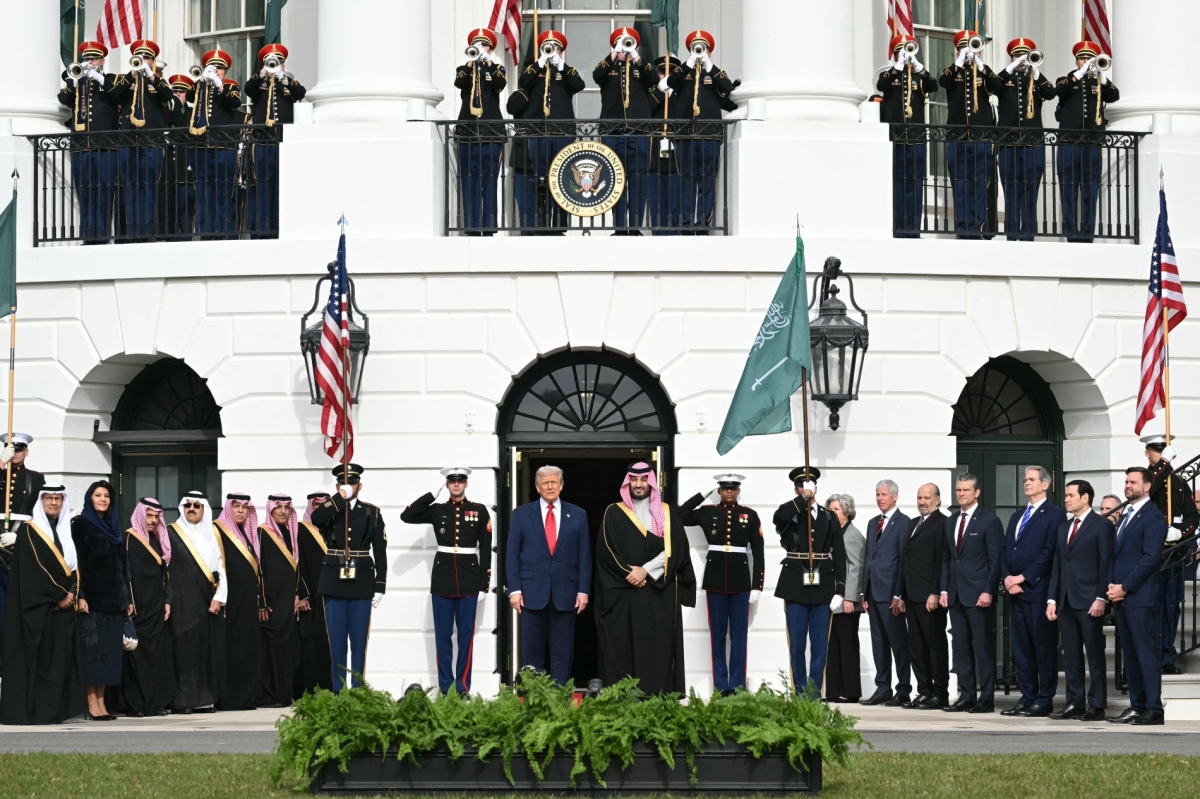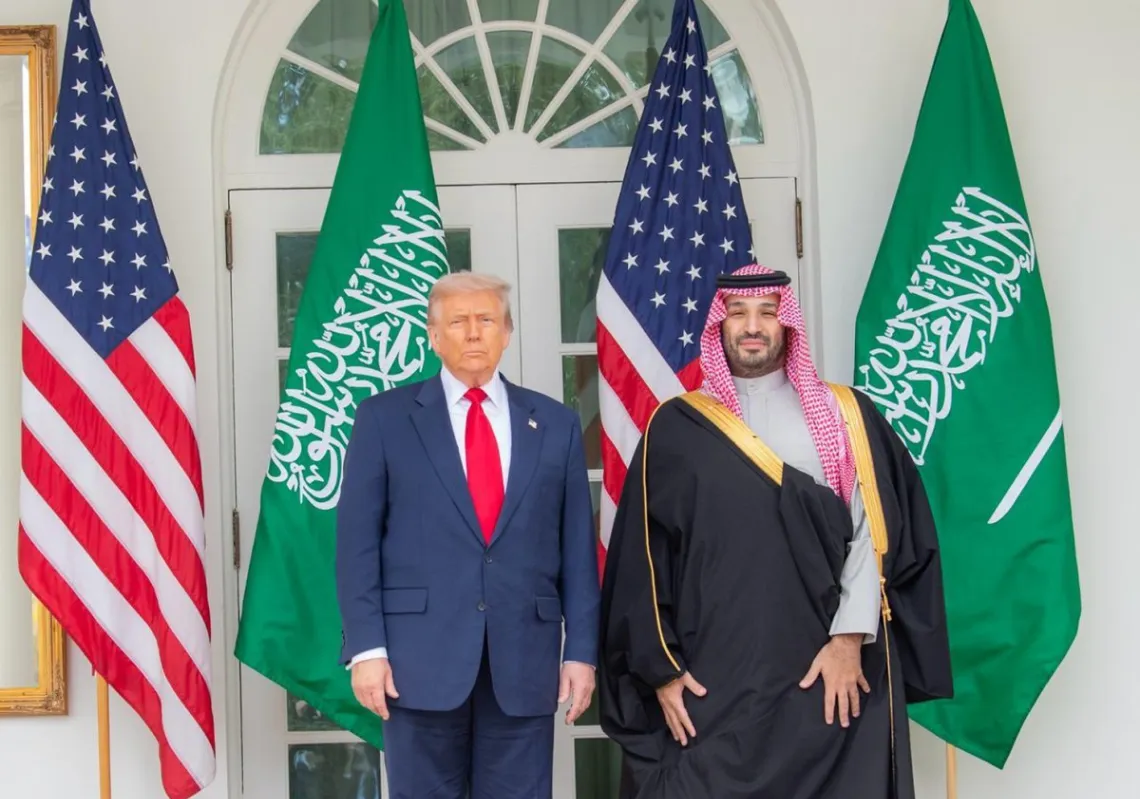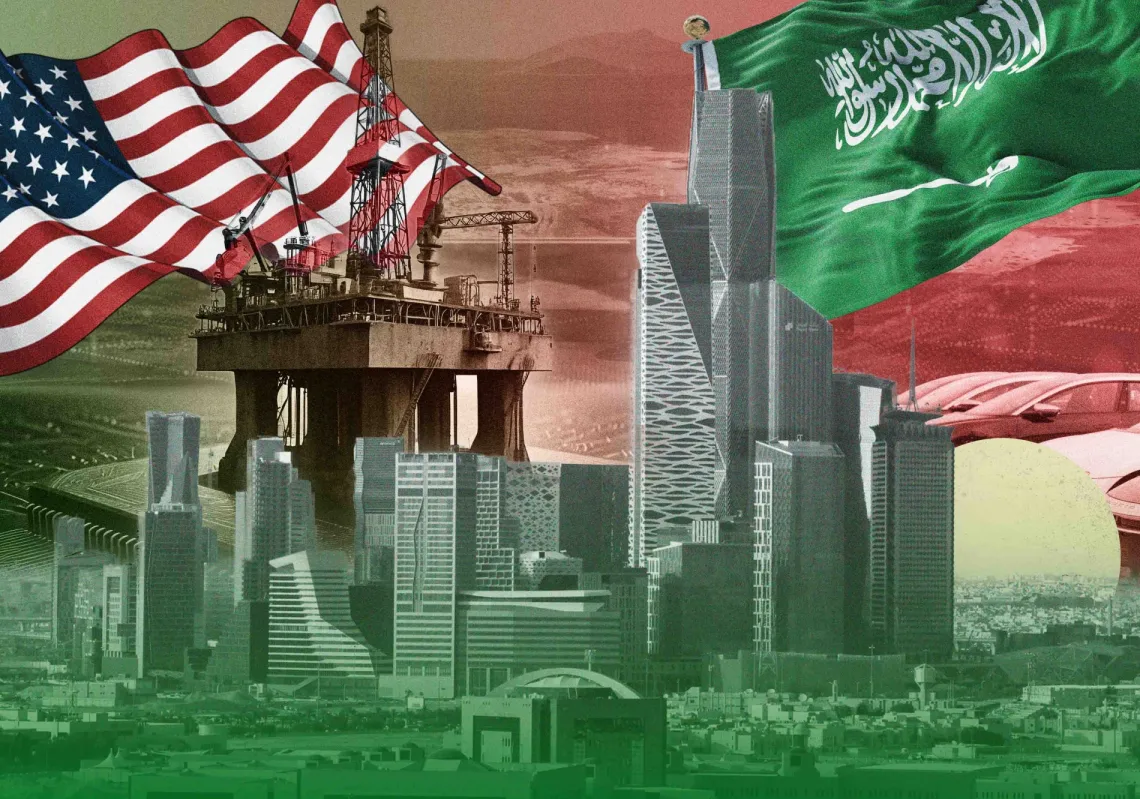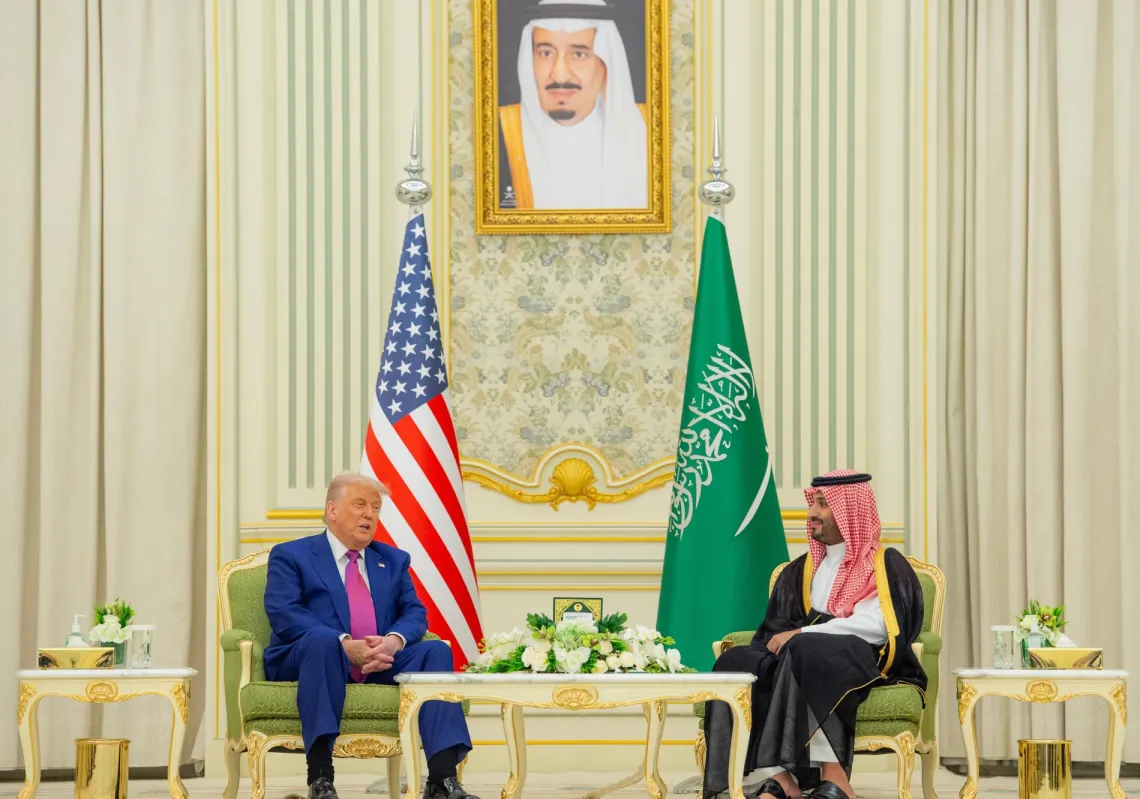Saudi Crown Prince Mohammed bin Salman's visit to Washington, DC in November marked a pivotal moment in the 80-year relationship between the United States and Saudi Arabia. History could look back on this moment as a major turning point for both countries, depending on how key strategic issues are addressed in the months to come.
The main takeaway from this visit was the continuation of efforts to both broaden long-standing foundations of bilateral ties beyond energy and security to new arenas of cooperation in high tech, artificial intelligence, critical minerals, and new areas of economic investment, including a stated commitment by Saudi Arabia to invest nearly $1tn in the United States. The visit also offered more hopeful signs that the two countries will deepen defence and security cooperation and open new avenues of coordination on issues such as nuclear energy.
But the positive vibes—private-sector business deals and photo opportunities during this visit—won’t produce forward momentum on their own; continued progress will require dogged, steady diplomacy that seeks to clarify key points still unresolved in defining the contours of the bilateral partnership for years to come.
Since the inception of US-Saudi ties when US President Franklin Delano Roosevelt met Saudi King Abdulaziz on the USS Quincy in the Suez Canal in 1945, the two countries have, for the most part, steadily climbed to greater heights.
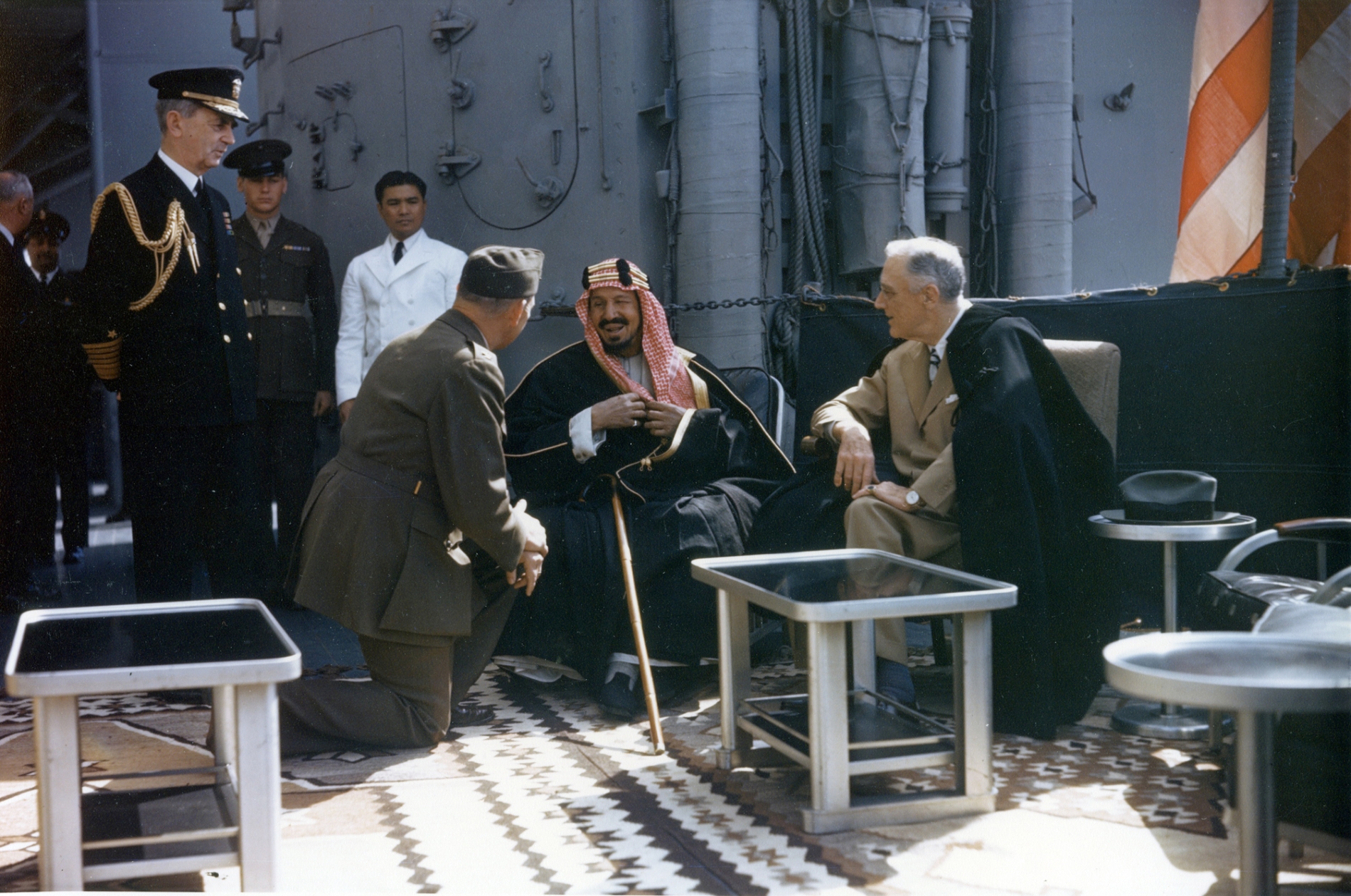
But relations have hit some significant stumbling blocks over the decades—the 1973 Saudi oil embargo, the 9/11 terror attacks and the Obama administration’s handling of the Arab Spring, to name a few.
During US President Donald Trump’s first term in office, he made a concerted effort to shore up bilateral ties between the two countries. However, his approach to Iran and Israel-Palestine did little to stabilise the region. The “maximum pressure” policy of the first Trump administration on Iran angered Tehran, which turned around and launched attacks on Saudi territory via its regional proxies on eastern Saudi Arabia in Abqaiq and Khurais in September 2019. Meanwhile, the de-prioritisation of Palestine in US policy has allowed the Israeli-Palestinian conflict to fester for years, and this issue blew up in a bad way on 7 October 2023.
Building on Trump’s approach to shore up ties, US President Joe Biden also moved toward a more strategic engagement with the Middle East, particularly Saudi Arabia, marked by his visit to Jeddah in the summer of 2022. In this visit, Biden pragmatically recognised that the Middle East is a central arena of geopolitical competition with China, rather than a region America should pivot away from. The Biden team began to build a framework for a new phase of long-term US engagement in the Middle East, laying the foundation for the approach Trump would continue in his second presidential term.
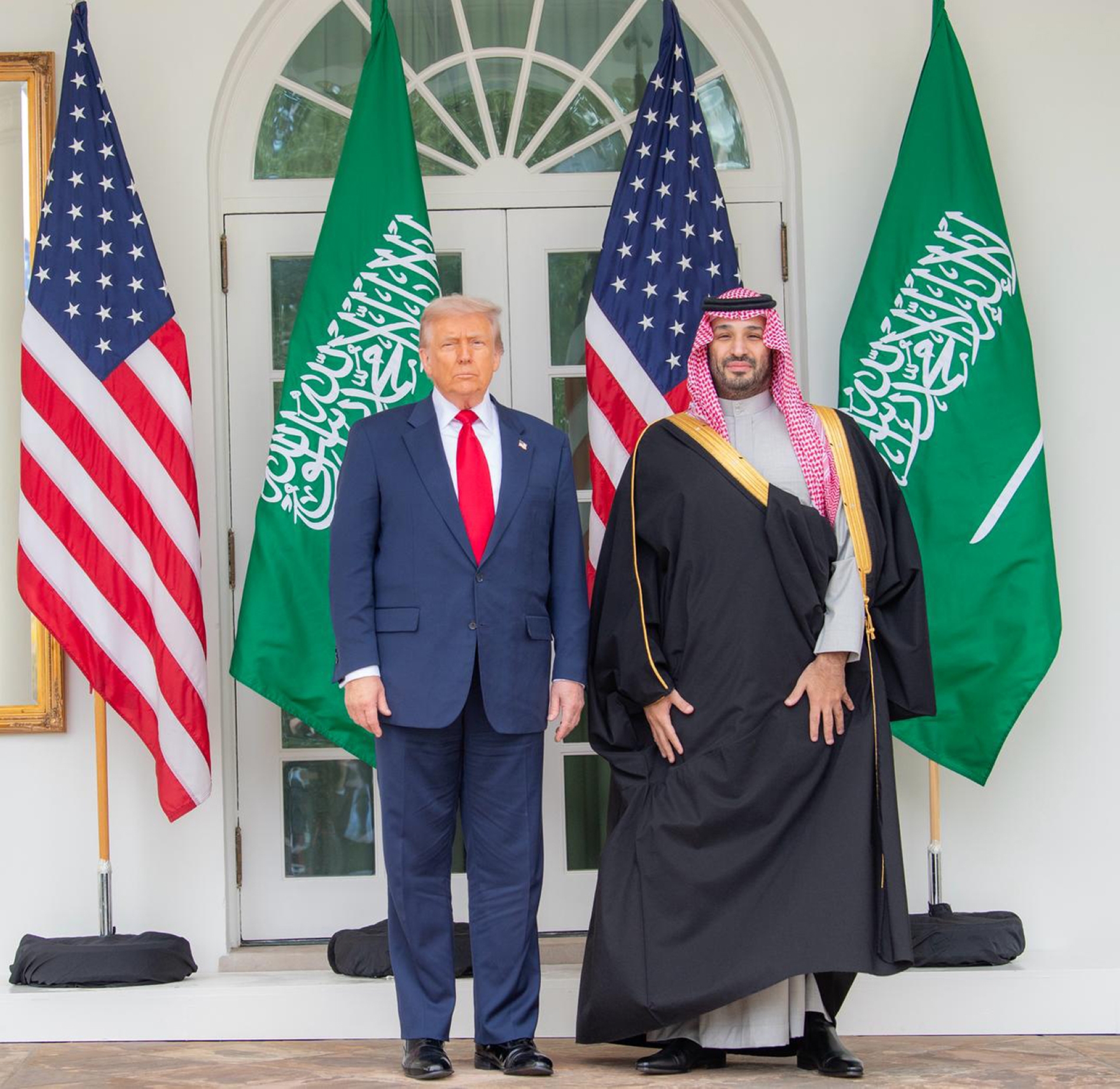
Eye-popping headlines
Fast forward to present day, Crown Prince Mohammed bin Salman’s visit to Washington, DC last week provided many eye-popping headlines—including the Saudi pledge to boost its investment in the US from $600bn to nearly $1tn and deals on artificial intelligence and critical minerals—key arenas of broader geopolitical competition with China.
They also signed a Strategic Defence Agreement, which affirms that Saudi Arabia views the United States as its primary strategic partner. Trump also agreed to sell America’s most advanced fighter jet to Saudi Arabia, the F-35. But details on how this move would maintain Israel’s qualitative military edge and also be structured in a way that prevents China from gaining access to the plane’s sophisticated technology could take years more to work out—and the US Congress will have a say in how this is structured.
Washington and Riyadh also signed a joint declaration on civil nuclear cooperation that set a collaborative framework, but fell short of a formal deal as they remain at odds over key details – the main point of contention between the two countries centred around what kind of nuclear enrichment Saudi Arabia might seek to have in the future. Congress will also have a say on how this cooperation deal takes form.


